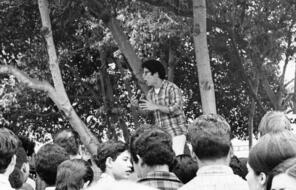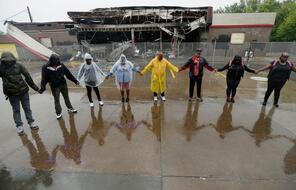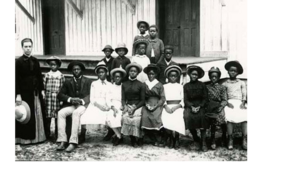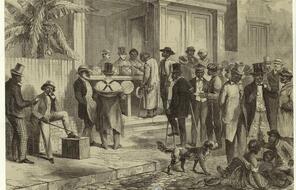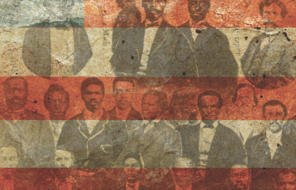South Carolina "Red Shirts" Battle Plan (1876)
Democratic Party paramilitary groups also emerged in South Carolina during the 1876 state and national campaigns. There, members of these groups called themselves the “Red Shirts.” Their official battle plan, which called for Democratic clubs armed with rifles and pistols, stated in part:
Every Democrat must feel honor bound to control the vote of at least one Negro, by intimidation, purchase, keeping him away.
We must attend every Radical meeting. Democrats must go in as large numbers as they can, and well armed, behave at first with great courtesy and as soon as their speakers begin tell them that they are liars and are only trying to mislead the ignorant Negroes.
In speeches to Negroes you must remember that they can only be influenced by their fears, superstitions and cupidity. Treat them so as to show them you are the superior race and that their natural position is that of subordination to the white man.
Never threaten a man individually. If he deserves to be threatened, the necessities of the times require that he should die. A dead Radical is very harmless—a threatened Radical is often troublesome, sometimes dangerous, and always vindictive.Every club must be uniformed in a red shirt and they must be sure and wear it upon all public meetings and particularly on the day of election. 1
- 1In Dorothy Sterling, ed., The Trouble They Seen: The Story of Reconstruction in the Words of African Americans (Da Capo Press, 1994), 465.
How to Cite This Reading
Facing History & Ourselves, "South Carolina "Red Shirts" Battle Plan (1876)," last updated March 14, 2016.
This reading contains text not authored by Facing History & Ourselves. See footnotes for source information.


